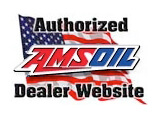13 Jul New Diesel Specifications Are Coming.
Fuel economy will be a major factor in the new requirements
Fuel economy has been the topic of discussion in many Tech Talks over the past four years. Federal CAFE (Corporate Average Fuel Economy) regulations aimed at improving fuel economy and reducing vehicle emissions in passenger cars and light-duty trucks have challenged automakers to improve their offerings or face fines. And original equipment manufacturers (OEMs) are looking to oil formulators and manufacturers to help them wring out every last tenth of a mile per gallon in their vehicles to avoid CAFE charges.
But maybe you haven’t been thinking about fuel economy lately. Just a few weeks ago, the price for a gallon of gasoline here in Superior, Wis. dropped to $1.85. At that price, what do a couple extra miles per gallon matter? I’m not an oil futures analyst, but I doubt we’ll see fuel prices remaining around $2 a gallon for years to come, so fuel economy will remain a subject of continual conversation.
While much of the CAFE attention has been directed at the passenger-car industry, on- and off-road big rigs have seemingly escaped the same scrutiny. But that is soon going to change, as a new proposed motor oil category (currently called PC-11) for the heavyduty vehicle industry is in the works. PC-11 is being spearheaded by the Engine Manufacturers Association (EMA) to address the many changes taking place in the heavy-duty industry through a new performance category intended to supersede API CJ-4.
Whereas API CJ-4 focused primarily on reducing diesel emissions to meet increasingly strict pollution limits, the new category will, for the first time, include fuel economy regulations. That means millions of vehicles equipped with large diesel engines – from overthe- road tractor trailers to off-road farm and construction equipment – will be facing tougher mpg requirements. Vehicle and fleet owners will need advice to understand how the new heavy-duty motor oil category will affect their equipment. That’s good news for AMSOIL Dealers.
New challenges await engine designers and oil formulators to create higher-performing products that increase efficiency without jeopardizing engine protection. In the passenger-car world, the trend is for lower-viscosity oils as they provide less resistance and require less energy to be pumped through an engine’s network of parts. The main concern with these thinner oils, however, is that they are thinner! Yet, they are still tasked with providing robust engine protection under extremely demanding operating conditions. Imagine a low-viscosity oil circulating through a multi-ton piece of highway construction equipment as it rolls over rough terrain for 10-12 hours a day for months on end. That low viscosity oil better be good.
Lower-viscosity oils will increasingly be recommended by equipment manufacturers for new engines. Alternatively, older engines were designed to run on thicker oils. Therefore, it is anticipated that the PC-11 category will be subdivided into PC-11A and PC-11B. The former will fall within the viscosity limits set currently and will also be backward compatible with older engines. PC-11B oils will include lower-viscosity oils than those under the current CJ-4 classification and will be designed for use in newer engines only.
PC-11A oils may be designated API CK-4, the next letter after CJ-4, and will have the same viscosity limits for diesel oils we all use today and will be backward-compatible with older engines.
The PC-11B diesel oils will be called something different enough to reduce confusion and misapplication, such as API FA-4 or FA-1, and will cover the new lower-viscosity category. These new oils will provide the same wear protection and will be required to pass the same tests as PC-11A, but will only be recommended in newer engines for improved fuel economy. The main difference between PC-11A and PC-11B oils will be HTHS (High-Temperature/High-Shear) viscosity, which tracks better with fuel economy than straight viscosity measurements.
It is expected that initial licensing for the new PC-11 oils will occur sometime between late 2016 and early 2017. The heavy-duty diesel market is a giant one – literally – and the new PC-11 regulations will open many doors for AMSOIL Dealers to serve this market by providing the industry’s best lubricants and service.

